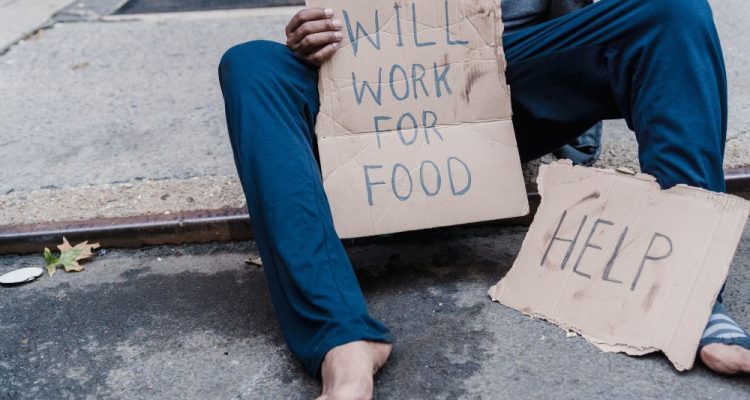With talks over raising the debt ceiling at loggerheads, Republicans have turned to a long-time favorite practice of theirs: blaming the poor. One of their demands to pay the country’s credit card – which has been done 78 times since 1960 and which used to be a bipartisan no-brainer – is to place work requirements on people receiving Medicaid or food stamps. Victimizing the poor, blaming the poor, separating the poor between those deemed “deserving” and those deemed “undeserving” is an oldie but a goodie among conservative elites.
In Michael Katz’s book, The Undeserving Poor: From the War on Poverty to the War on Welfare, Katz historically locates the first time the categories of “deserving” and “undeserving” poor in the mid-nineteenth century. It was not a coincidence that this was at the same time as the rise of the industrial revolution when there was an increasing chasm between the rich and the poor in the United States.
In 1821, when Massachusetts Speaker of the House Josiah Quincy gave a report on the “poor laws” he suggested that the poor be divided into “two classes . . . the impotent poor; in which denomination are included all who are wholly incapable of work, through old age, infancy, sickness or corporeal ability . . . [and in the second category] the able poor . . . all who are capable of work, of some nature, or other; but differing in the degree of their capacity, and in the kind of work in which they are capable.” (p. 12)
Unfortunately, like so many dehumanizing policies enacted into law, this unholy separation has its roots in Christian theology. Though the vast majority of passages in Scripture make no distinction between “deserving” and “undeserving” poor (the exceptions being in the Wisdom literature, which, not ironically, was written during the height of Israel’s power), many current missional approaches in local churches today are often based on viewing the problem of poverty or oppression as the problems of the poor and oppressed themselves. When the problem is not injustice, but rather, the level of morality of the poor themselves, then creating a segmentation of who is eligible for help makes sense.
The problem is, of course, our reason is not based on even a cursory interpretation of Scripture. Thus, precious little attention is given to discussing the biblical roots of poverty and oppression and with scant attention paid, it is no wonder that there is little corresponding missional activity addressing systemic injustice. We help those we deem to be “deserving” and we judge those deemed to be “undeserving” to be outside our ability or interest to aid. And we falsely claim faithful stewardship of our resources for the reasons why we do not care for the undeserving poor.
A more honest assessment of why we do not help the “undeserving” poor is a failure to properly exegete the Bible.
And while the church has done precious little work in contextualizing our missional approach to addressing the roots of injustice and oppression, the work of contextualizing the categorization of deserving and undeserving is done daily, almost without thinking. Consider, for example:
- DREAMers, or migrants brought to the United States as children, are deemed “good” immigrants because they were brought to the US through “no choice of their own,” which is a common refrain that carries with it the implication that migrants who travel to this country who are older are to be blamed for their migration even though most who sojourn here do so as a result of economic and environmental devastations (many of which are directly related to US foreign, economic, or environmental policies),
- Even though there is widespread agreement that our prison population – which is the largest in the world – is far too large and far too many people are imprisoned for either crimes they did not commit or are incarcerated for far too long for minor offenses, there is, at present, only bipartisan agreement on what is called “compassionate release,” which is designated only for deathly-sick and elderly prisoners. The elderly and sick are the “good” prisoners while hundreds of thousands of others are dismissed from consideration for being released, even though they have served sentences for years beyond what can reasonably be justified.
On and on it goes. Rather than viewing all people as created in the image of God and doing whatever we can to ensure peoples’ dignity and rights are protected, the church has allowed and even perpetuated the blessing of categorizing people into groups of worth whereby some are deemed beyond help. To claim God’s unconditional love and grace while at the same time placing rigid conditions on people living on the margins is to render our claims null and void for in as much as we have done it to the least of these, we have done it to Jesus.
If every follower of Jesus applied God’s unconditional love for all of Creation to our various forms of missional engagement, Speaker McCarthy’s gambit to attach work requirements to people already experiencing marginalization would be dead on arrival. But it is not only a viable proposal, it is likely.

